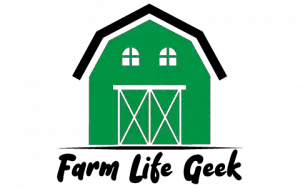Let’s say you’re considering building a goat shelter and you’re wondering if pressure-treated wood is a safe option. There are a few reasons why someone might consider using pressure-treated wood for their goat shelter.
First of all, it’s extremely durable and resistant to rot, insects and moisture. This makes it a popular choice for those who live in humid or wet climates. Additionally, pressure-treated wood is often less expensive than other options on the market.
Goat shelter options
However, there is some controversy over whether or not pressure-treated wood is safe for goats to be in contact with. The main concern is that the chemicals used to treat the wood (typically chromate copper arsenate or CCA) can be toxic if ingested.
Some studies have shown that goats are more likely to ingest pressure-treated wood than other animals, due to their habit of chewing on things. There is also some evidence that the chemicals in pressure-treated wood can leach into the soil, which could potentially contaminate grazing areas.
Pros and cons of using pressure-treated wood for goat shelters
The advantages of the pressure-treated wood for goat shelters are the following:
- it is extremely durable,
- resists rot, insects, and moisture,
- it is often less expensive.
The disadvantages are that:
- the chemicals used to treat the wood can be toxic if ingested
- some studies have shown that goats are more likely to ingest pressure-treated wood than other animals.

How to build a goat shelter using pressure-treated wood?
If you decide to use pressure-treated wood for your goat shelter, there are a few things you can do to minimize the risk to your goats.
First, avoid using any pressure-treated lumber that has already been used in construction projects. These boards may have small pieces of treated wood that could break off and be ingested by your goats.
Second, seal any exposed edges of the pressure-treated lumber with a non-toxic sealant. This will help to prevent the chemicals from leaching out of the wood.
Finally, make sure that your goat shelter is well-ventilated. Goats are particularly sensitive to fumes, so good ventilation will help to reduce the risk of respiratory problems.
Also read:
Alternatives to pressure-treated wood
If you’re concerned about the safety of your goats, there are a few alternatives to pressure-treated wood that you can use for your goat shelter.
One option is to use untreated lumber and treat it yourself with a non-toxic sealant. This is a good option if you’re worried about the chemicals in pressure-treated wood, but you still want the durability and resistance to rot that it offers.
Another alternative is to use composite lumber. This material is made from recycled plastic and wood fibers, so it doesn’t contain any harmful chemicals. Composite lumber is also very durable and resistant to rot, making it a good choice for goat shelters.
Conclusion
So what’s the verdict? Is pressure-treated wood safe for goats? The answer is that it depends. If you’re concerned about the potential risks, there are a few alternatives you can consider.
pressure-treated wood is safe for goats if certain precautions are taken. These include sealing the lumber and providing good ventilation. There are also a few alternatives to pressure-treated wood that can be used for goat shelters, such as untreated lumber and composite lumber.
One option is to use naturally rot-resistant wood, such as cedar or redwood. You can also try using plastic lumber, which is made from recycled milk jugs and other materials.
